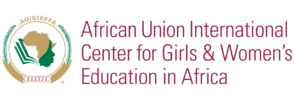The programme aims to train people working in the malaria programmes in the respective countries at national and sub-national levels to increase their analytical and problem-solving skills, leadership abilities, and implementation of evidence-based policies and approaches that adapt to the changing malaria landscape to support the transition from malaria control to elimination. Alongside individual capacity building, the programme aims to establish fora within the respective Ministries of Health that will bring together stakeholders supporting malaria eradication as well as alumni of the ALAMIME programme to drive malaria eradication efforts in the country.
Programme Outlay
The training will cover 180 hours and consists of two online modules, two face-to-face modules, and the practicum.
– Module 1: Introduction to leadership and management and data use for malaria elimination
– Module 2: Leading and managing programmes
– Module 3: The science and art of malaria elimination
– Module 4: Data use and evidence for decision making
– Practicum: Analysis of malaria programme data and generating countermeasures
– Alumni Activities: Participation in all alumni activities including monthly webinars and community of practice.
The training will take place at the Schools of Public Health of the ALAMIME consortium universities in the respective countries. Modules 1 to 4 will each be 40 hours long and will be undertaken in one week. Participants will have in-class assessments. The Practicum will be equivalent to 20 hours. In addition, each participant will:
1. Generate a case study of an intervention where they conducted a malaria control or eradication activity,
2. Conduct a training on one of the malaria eradication topics at the place of work, and
3. Write a report on the analysis of malaria data with expected interventions that are informed by the data analyzed (i.e., the practicum).
Successful participants will be awarded by the ALAMIME consortium a Certificate in Leadership, Management, and Governance for Malaria Eradication. Furthermore, upon completing the training, all alumni are required to participate in alumni activities, such as webinars and community of practice (COP) discussion forums, to cascade malaria eradication efforts both within and beyond the consortium.
Eligibility Criteria:
Applicants should be officers working in a malaria control program at National or Sub-National (local government) level in the nine consortium member countries (Uganda, Democratic Republic of Congo, Burkina Faso, Niger, Nigeria, Tanzania, Sierra Leone, Togo, and Benin).
Funding for the Training:
Participants will not be required to pay any fees. The training tuition fee, accommodation, and transport fees are sponsored by the Bill & Melinda Gates Foundation.







